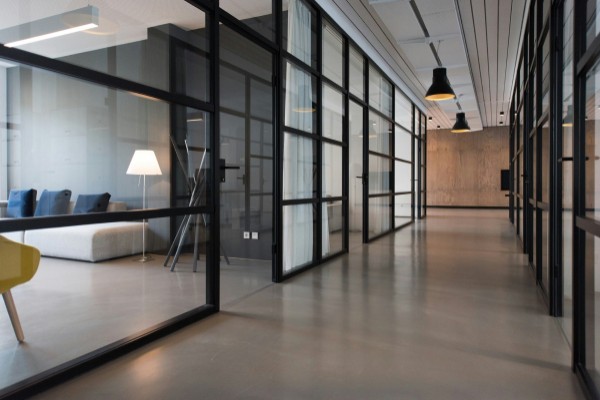Commercial Property News
Commercial Property News
Current Trends and Developments
Introduction
The UK commercial property market is an ever-evolving landscape, influenced by a myriad of factors such as economic conditions, technological advancements, and changing consumer behaviors. As of 2025, the sector is witnessing significant shifts that are shaping the future of commercial real estate. This document explores the latest news, trends, and developments in the UK commercial property market.
Market Overview
The commercial property market in the UK encompasses a wide range of asset types, including office spaces, retail properties, industrial units, and mixed-use developments. After navigating the challenges posed by the COVID-19 pandemic, the market is gradually recovering, with key trends emerging across various segments.
Office Spaces
The office market has undergone a substantial transformation, driven by the adoption of flexible working arrangements. Hybrid working models, which allow employees to split their time between the office and remote locations, have become the norm for many businesses. This shift has led to a re-evaluation of office space requirements, with companies seeking more adaptable and collaborative environments.
One notable trend is the increase in demand for high-quality, sustainable office spaces. Businesses are prioritizing properties with green certifications, such as BREEAM and LEED, to align with their corporate social responsibility goals. Additionally, the rise of serviced office providers, offering flexible lease terms and fully equipped workspaces, is reshaping the traditional office market.
Retail Properties
The retail sector has faced significant challenges in recent years, with the rise of e-commerce and changing consumer preferences. High street retailers are adapting by embracing omnichannel strategies, integrating online and offline shopping experiences to meet customer demands. Meanwhile, there is a growing trend towards experiential retail, where stores offer unique and immersive experiences to attract foot traffic.
Retail parks and shopping centers are also evolving, with a focus on creating mixed-use destinations that combine retail, leisure, and dining options. This approach aims to enhance the overall visitor experience and drive increased footfall. However, the sector remains vigilant, as economic uncertainties and shifting consumer behaviors continue to pose challenges.
Industrial Units
The industrial property market has been a standout performer, driven by the growth of e-commerce and the need for efficient logistics and distribution networks. Demand for warehouse and distribution centers remains robust, particularly in key logistics hubs near major transport routes.
The rise of last-mile delivery services has further fueled demand for urban logistics facilities, located closer to city centers to ensure quick and efficient deliveries. Additionally, advancements in automation and technology are transforming industrial properties, with smart warehouses and automated systems becoming increasingly prevalent.
Mixed-Use Developments

Mixed-use developments are gaining traction as a solution to the evolving needs of urban environments. These projects combine residential, commercial, and recreational spaces, creating vibrant and self-sufficient communities. The integration of amenities such as parks, gyms, and co-working spaces enhances the appeal of mixed-use developments, attracting residents and businesses alike.

One notable example is the regeneration of former industrial sites into mixed-use neighbourhoods, which breathe new life into underutilized areas. These developments often incorporate sustainable design principles, aiming to reduce environmental impact and promote a high quality of life for occupants.
Investment Trends
Investment activity in the UK commercial property market remains strong, with both domestic and international investors seeking opportunities. The sector's resilience and potential for long-term growth make it an attractive asset class.
Foreign Investment
Foreign investors, particularly from Asia and the Middle East, continue to show a keen interest in UK commercial properties. The depreciation of the British pound and the relative stability of the UK market make it an appealing destination for international capital. Key cities such as London, Manchester, and Edinburgh are hotspots for foreign investment, with prime office buildings and retail properties being highly sought after.
ESG Focus
Environmental, Social, and Governance (ESG) considerations are increasingly influencing investment decisions. Investors are prioritizing properties with strong sustainability credentials and those that contribute positively to the community. Green buildings, energy-efficient technologies, and socially responsible developments are attracting premium valuations and heightened interest from ESG-focused funds.
Sector Diversification
Investors are diversifying their portfolios by exploring alternative sectors within the commercial property market. Sectors such as healthcare real estate, student accommodation, and data centers are gaining attention due to their resilient performance and growth potential. These niche sectors offer attractive yields and are less susceptible to economic fluctuations compared to traditional asset classes.
Challenges and Opportunities
While the UK commercial property market presents numerous opportunities, it also faces challenges that require strategic navigation.
Economic Uncertainty
Economic uncertainty, driven by factors such as inflation, interest rate fluctuations, and geopolitical tensions, poses a risk to the commercial property market. Investors and businesses must remain vigilant and adopt flexible strategies to mitigate potential impacts. Monitoring economic indicators and staying informed about policy changes will be crucial in making informed decisions.
Technological Disruption
Technological advancements are transforming the way commercial properties operate and are managed. The adoption of proptech solutions, such as smart building systems, data analytics, and blockchain, is enhancing efficiency and transparency in the sector. Embracing these technologies can provide a competitive edge and improve the overall tenant experience.
Sustainability Imperatives
Sustainability is a key consideration for the future of commercial real estate. The drive towards net-zero carbon emissions and environmentally friendly practices is reshaping the market. Developers and investors must prioritize green building standards and innovative solutions to meet regulatory requirements and address the growing demand for sustainable properties.
Adapting to Changing Lifestyles
The evolving preferences and lifestyles of consumers and businesses are influencing the design and use of commercial properties. Flexibility, convenience, and well-being are becoming paramount considerations. Properties that can adapt to these changing needs and offer a blend of work, leisure, and living spaces will be well-positioned for success.
Summary
The UK commercial property market is at a pivotal moment, characterized by both challenges and opportunities. As the sector continues to recover and adapt to new realities, staying abreast of trends and developments will be essential for stakeholders. By embracing innovation, sustainability, and flexibility, the UK commercial property market can thrive and continue to be a cornerstone of the economy.

